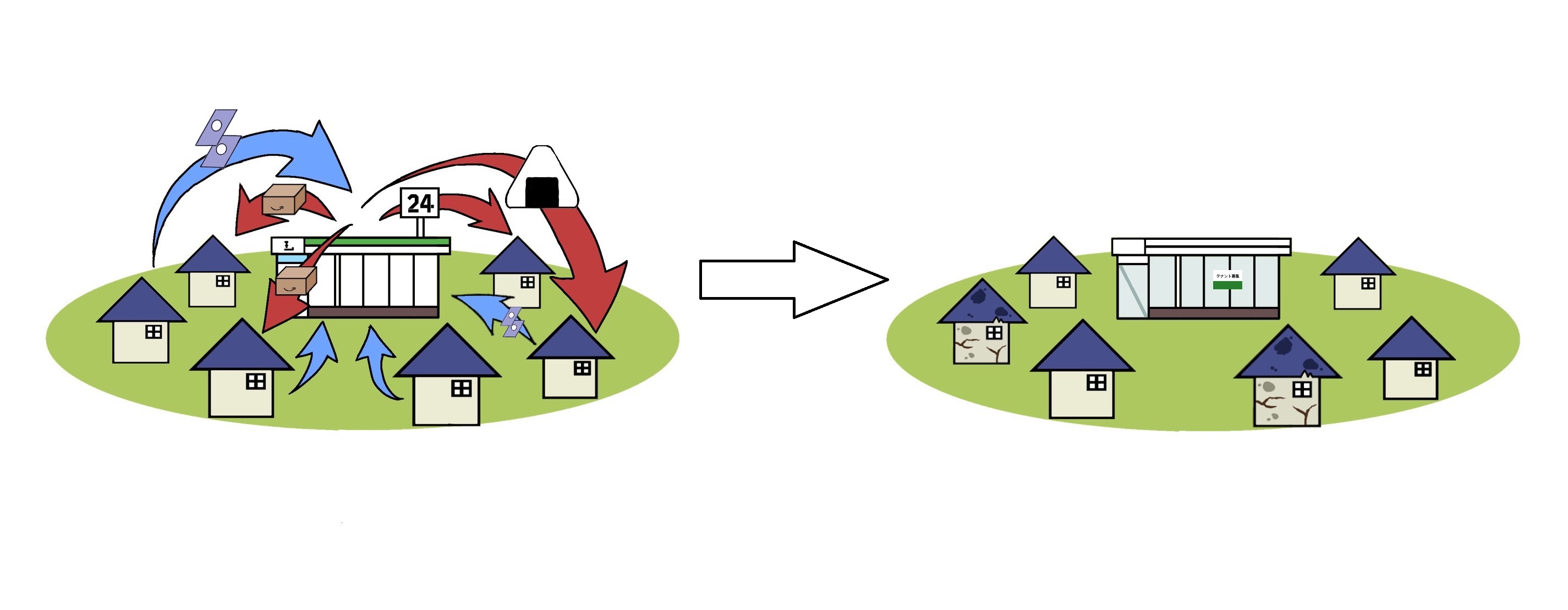Social impacts of vacant houses
Losing opportunities
The vacant houses which are not in use nor on sale are losing opportunities.And even if there are people who want to open a shop there, the vacant houses prevent it.
A new shop could revitalize the community so the losing opportunities is not desirable at all.
Financial collapse
The more people leave the area because of external economy and losing opportunities, the more vacant houses we have.It is said that if the vacant house rate becomes 30%, the finance of the local government collapse.
Actually in Yubari City in Hokkaido Japan, whose finance collapsed in 2007, the rate was 33.01% and Detroit City in the US,
which had the biggest finance collapse in history, the rate was 29.3%.
Inefficient infrastructure
If a town has 500 houses where people live, the local government will prepare the infrastructure for all these houses.For example, they have to set up police boxes, fire departments, traffic signals, streetlamps and roads.
However, there is no problem with it because the town receives enough tax revenues from 500 households.
We can say the same thing for a town which has 350 houses where people live.
Sponge city
The density of a town means how many shops or houses there are in a certain area.When the population of a town increases and the town grows up, the town expands without any order.
On the other hand, when the population of a town decreases and the town shrinks,
the number of the vacant houses increases in many places in the town.
The burden of the town increases, because the density of the town decreases.
The number of customers who visit the restaurant and convenient store decreases and many shops leave the area.
In conclusion, the town shrinks.

Created by us.
※1:*2008年調査
「平成20年住宅・土地統計調査 」の 確報集計 都道府県編(都道府県・市区町村) 01北海道の
[居住世帯の有無(8区分)別住宅数及び住宅以外で人が居住する建物数―市区町村] より算出。
※2 東京司法書士会「ファーロ司法の窓 2015年春号」よりデータを引用。
NHK「シリーズ日本新生ニッポン"空き家列島"の衝撃~どうする?これからの家と土地~」よりデータを引用。
※2 東京司法書士会「ファーロ司法の窓 2015年春号」よりデータを引用。
NHK「シリーズ日本新生ニッポン"空き家列島"の衝撃~どうする?これからの家と土地~」よりデータを引用。
<Prev. Next >